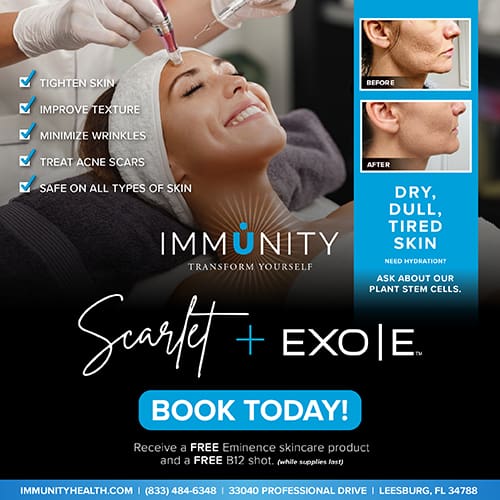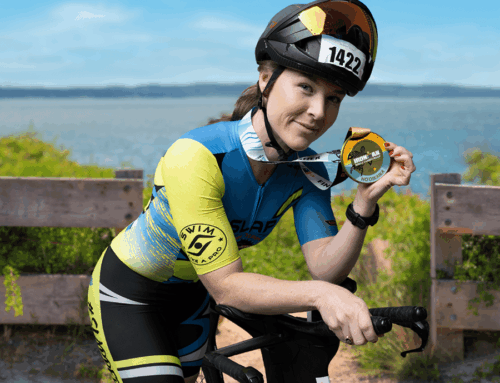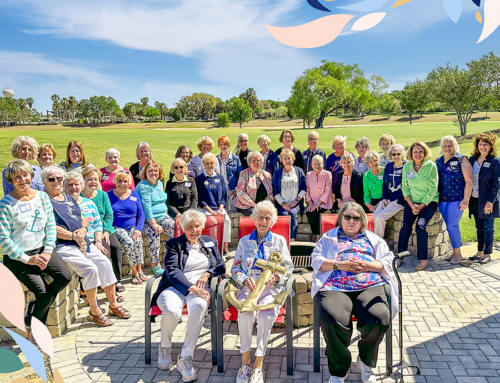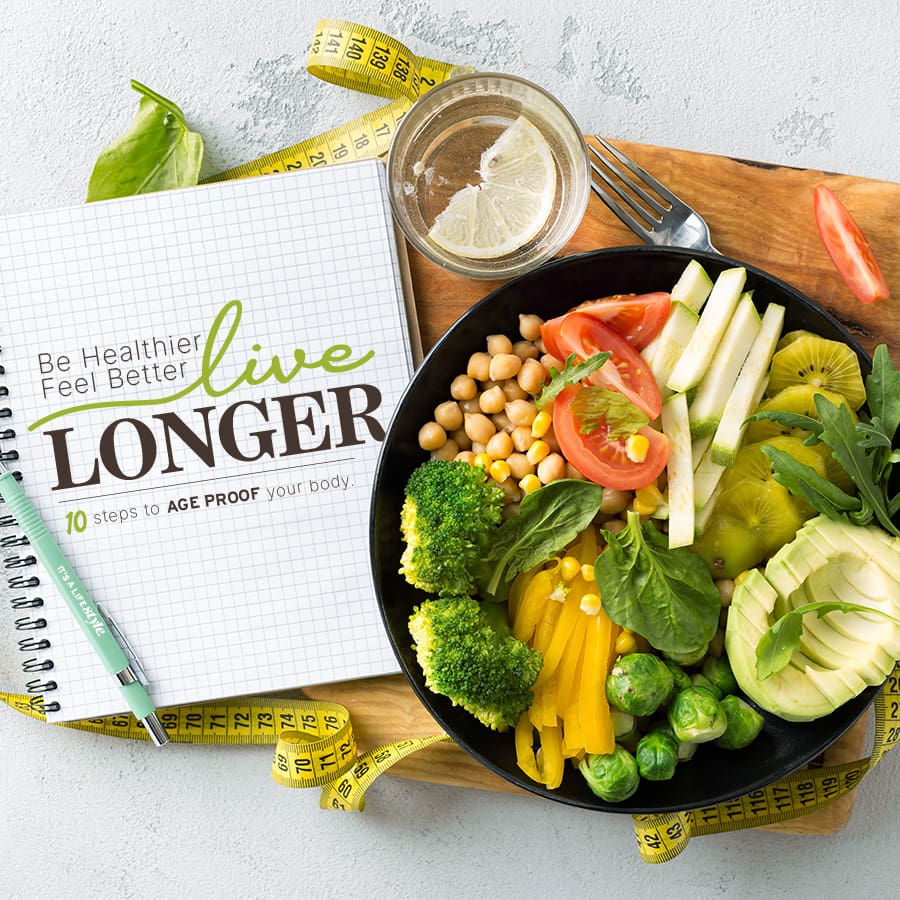
By Cynthia McFarland
Be Healthier, Live Longer – 10 Steps to Age Proof Your Body

In 1900, life expectancy in the United States was just 48.1 years.
As we move into the last months of 2024, average life expectancy at birth in the U.S. is 77.5 years, down from 78.8 years in 2019.
Only about 25% of the variation in life span is attributed to genetics. That means lifestyle choices play a huge role in health and longevity. Smoking, alcohol consumption, poor diet and lack of physical activity can literally subtract years from your life.
For example, smokers die 10 years sooner on average than non-smokers, according to data from the Centers for Disease Control and Prevention (CDC). Quit smoking at age 50 and you can regain six years of life expectancy. Quit at 60 and you regain three years.
Clearly, founding father/scientist/inventor Benjamin Franklin knew what he was talking about when he said, “An ounce of prevention is worth a pound of cure.”
If we take Ben Franklin’s advice to heart and start making simple lifestyle changes, we can be healthier, feel better and live longer. Follow these 10 steps to help “age proof” your body:
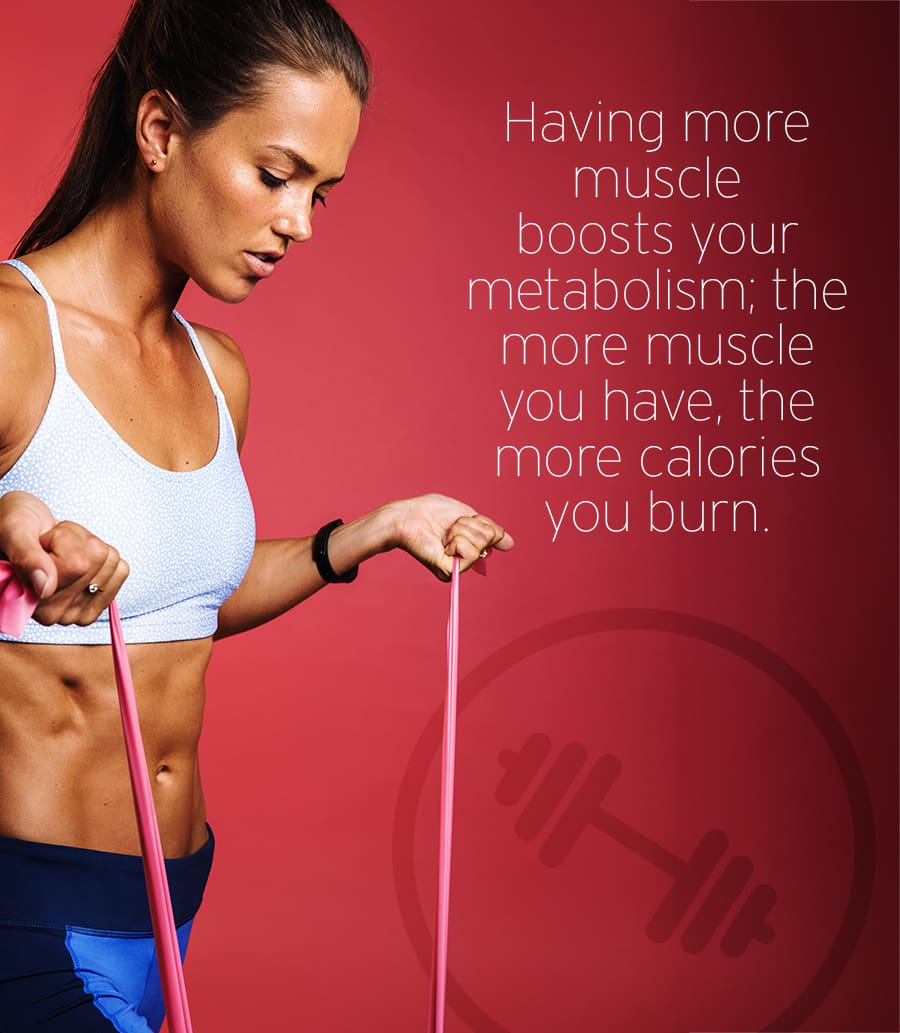
Prioritize Strength Training
Loss of muscle mass is common in both men and women after age 30. Strength training can help maintain muscle mass, keep you mobile and enhance overall health as you age.
“Strength training can help you get stronger, look good in your clothes, reduce the risk of injury and also improve your mental health. Having more muscle boosts your metabolism; the more muscle you have, the more calories you burn,” says Sine Wallace, master trainer and owner of Wallace Fitness™ in Mount Dora.
“Strength training also helps with bone density because having more muscle helps bones get stronger and helps prevent osteoporosis. It also helps regulate hormones and is really helpful for women in menopause,” says Sine, adding that even people in their 70s can put on muscle with the right workout program.
Using correct form is crucial to avoid injury, which is why you should work with a trainer to develop a program. A successful strength training plan takes into consideration your goals and any physical limitations and injuries.
A combination of walking and resistance are usually recommended. A good example is 120 minutes of brisk walking weekly and a 50-minute session of resistance training and flexibility (stretching) two to three times a week.
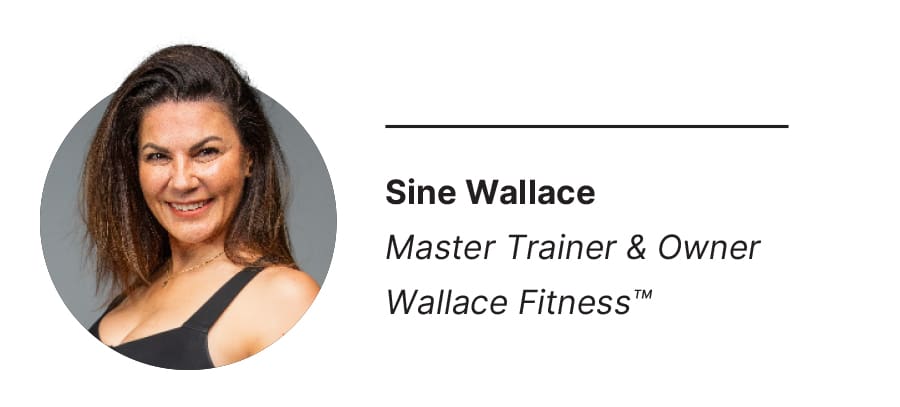
Embrace a Balanced Diet
It sounds simple, but it’s true: You are what you eat. You can’t expect to be healthy and age well if you don’t fuel your body properly.
“A balanced diet provides the nutrients you need and helps with digestion and gut health, which is tied to your immune system. It also helps protect against environmental toxins you can’t control,” explains Debbie Bookman, health and nutrition coach with Total Nutrition and Therapeutics (TNT) in Lady Lake.
Debbie recommends avoiding processed foods as much as possible because they include chemicals to increase shelf life, and the way your body processes them makes you crave more.
“It’s always better to cook at home using whole foods rather than preparing something from a box,” she notes.
To reduce inflammation, cut back on sugar. Debbie advises staying under 25 to 30 grams of sugar per day.
Eating healthy means taking a “big picture” view of what you eat regularly, not just at one meal, so don’t beat yourself up about the occasional pizza splurge.
A balanced diet is based around these core elements:
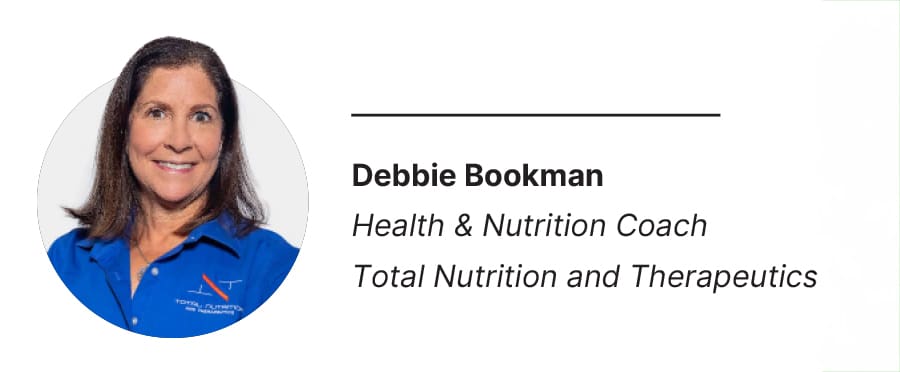
Stay Hydrated
It’s no secret that water is necessary for survival, but studies show 47% of Americans are chronically dehydrated.
If you’re determined to age better, get used to drinking more water, urges Debbie Bookman.
You should drink at least half your body weight in ounces of water daily. For example, a 150-pound person needs a minimum of 75 ounces of water per day. Add another 20 ounces to that if you’re exercising or it’s hot and humid. In addition, drink the same number of ounces of water as the ounces of caffeinated drinks consumed each day.
![AdobeStock_489184769 [Converted]](https://lakeandsumterstyle.com/wp-content/uploads/2024/08/AdobeStock_489184769-Converted.jpg)
For all those haters who dislike plain water, there’s really no excuse. Your body requires water to function, so drink up and add flavor with mint or basil leaves, slices of cucumber, lemon or lime.
Powdered electrolytes can provide flavor and necessary minerals. Just skip those that include sugar or artificial sweeteners. Another option is adding four ounces of coconut water, which contains natural electrolytes.
Although alkaline water has become trendy, Debbie says there isn’t enough research to support the many health claims by users or sellers.
She recommends drinking from a filtered water source rather than plastic bottles, which can release chemicals into the water when hot.
Bathroom visits will confirm if you’re properly hydrated or not. You should be urinating every few hours regularly throughout the day, and urine should be colorless or pale yellow.

Get Adequate Sleep
“Insufficient quality and quantity of sleep affect logical reasoning, and the ability to process complex thoughts and complete tasks, plus it makes you grumpy,” says David M. Levitt, MD, an internal medicine specialist with Aegis Medical Group Clermont.
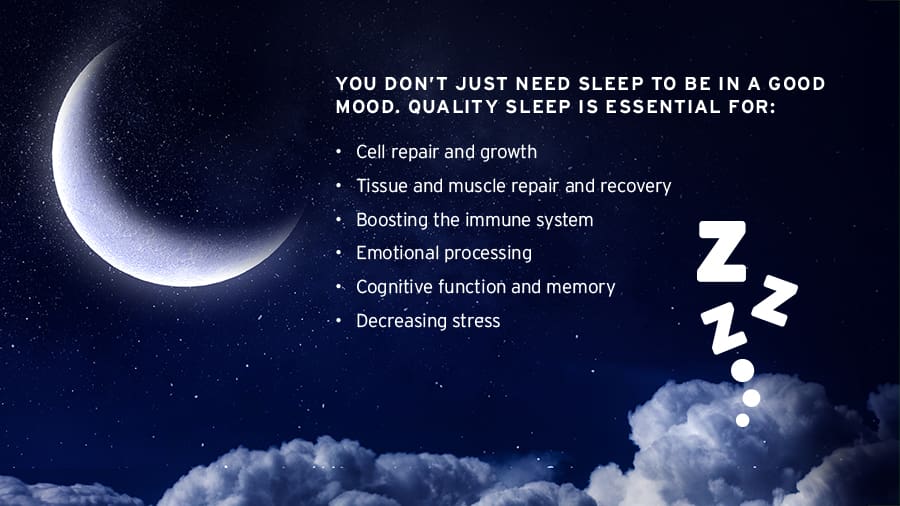
How much is enough? Research shows that adults (age 19 and older) need seven to nine hours of sleep every 24 hours. Forget the myth that we need less sleep as we age. Seven hours is the recommended minimum for all adults.
Still not convinced you need that much sleep? Data from a study with 7,959 participants with a 25-year follow-up showed a 30% increased dementia risk associated with sleep duration of 6 hours or less at ages 50 and 60. Do your brain a favor and get at least seven hours!
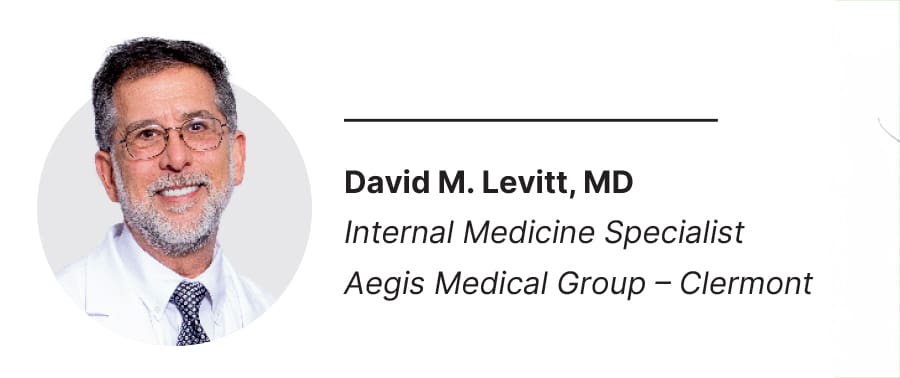
Manage Stress
When you’re stressed, your body releases the hormones adrenaline and cortisol. This might help save your life in a fight-or-flight situation – like running out of a burning building – but your body wasn’t designed to have the stress-response system activated long-term. Continued exposure to stress hormones interferes with normal body processes and increases the risk of health problems. Long-term stress has negative impacts on the body and even on life expectancy.
At Silver River Counseling in Ocala, Alan Hickey, a licensed mental health counselor (LMHC), often counsels couples and individuals on how to manage stress.
Hickey emphasizes the importance of having proactive and reactive ways to handle stress.
“Proactive mechanisms are self-care and that looks different for different people. It can mean exercise, eating well, spending time with loved ones, prayer, meditation, going to church. Whatever works for you, keep that going,” Alan says.
Reactive methods include confronting the stressor, which is one of the most effective ways of managing stress. This can include venting with a close friend, journaling, listening to music or talking with a therapist.
If you’re feeling bogged down to the point that you can’t handle the stress, that’s an indication you could benefit from professional help.
Hickey points out that some stress is beneficial. Eustress is stress – either physical or psychological – that motivates you to take positive action. (Think strategizing with a new boss after being hired for your dream job or preparing for an international vacation.)
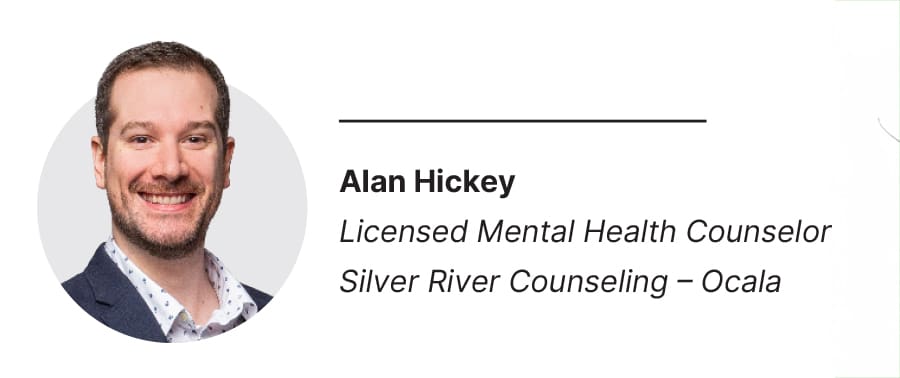
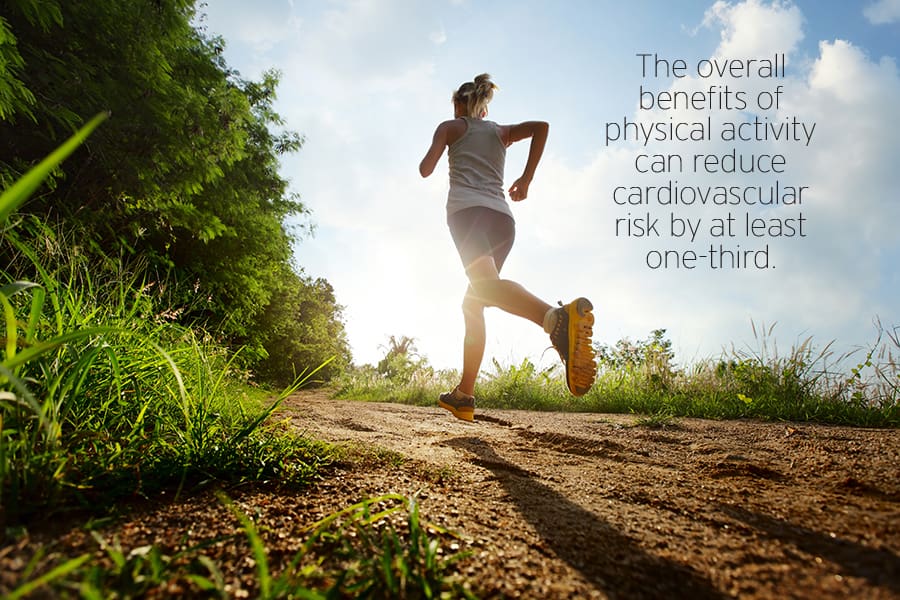
Regular Cardiovascular Exercise
Heart disease remains the leading cause of death in the U.S.
Dealing with the downstream effects of poor health has convinced Ronald Garcia, MD, of the value of regular cardiovascular exercise as preventative care.
Cardio exercise is any type of continued movement or aerobic exercise that raises your heart rate and keeps it elevated for a period of time.
“The overall benefits of physical activity can reduce cardiovascular risk by at least one-third. If you are fit and active and doing more vigorous activity, it can reduce cardiovascular risk by two-thirds,” notes Dr. Garcia, a triple board-certified interventional cardiologist with Orlando Health Medical Group FHV Health – Leesburg.
Good news! You don’t have to hit the gym to reap benefits.
Make up your own workout by combining a series of the following:
- Jumping jacks
- Jumping on a trampoline
- Boxing
- Squats
- Hula Hooping
- Jumping rope
- Climbing stairs
- Arm circles
- Brisk walking
- Dancing and swimming laps count, too. And don’t forget sports. Pickleball, anyone?
The American Heart Association recommends adults get 150 minutes per week of moderate-intensity aerobic activity or 75 minutes per week of vigorous aerobic activity. Or aim for a combination of both, ideally spread throughout your week.
“It’s never too late to start cardiovascular exercise. Even if you’re retired, treat exercise and diet like a job. Then you can lighten up on the weekend a little,” advises Dr. Garcia. “You’ll reduce your risk of heart disease and stay mentally sharp longer.”
Studies show that people who exercise regularly – even just three hours a week – live almost seven years longer than those who don’t.
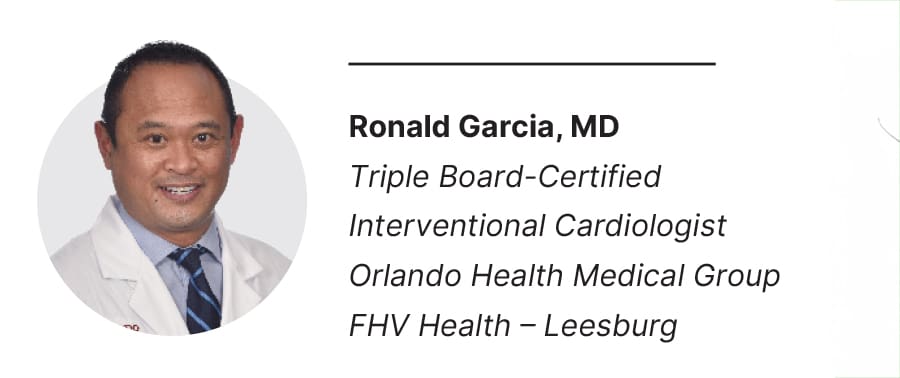
Protect your Skin
We live in a state that averages 230-250 days of sunshine a year. That’s relevant when you realize that 1-in-5 Americans will develop skin cancer by age 70.
The Skin Cancer Foundation reports that more people are diagnosed with skin cancer each year in the U.S. than all other cancers combined. So how can you protect your skin while enjoying all Florida has to offer?
“Of course, we want to be active outdoors in this sunny state. Just keep something between your skin and the sun, whether that’s shade, fabric, or sunscreen,” advises Jessin Blossom, MD, FAAD, a board-certified dermatologist and Mohs surgeon with Ocala Plastic Surgery and Dermatology, who sees patients in The Villages and Ocala locations.
“The skin cancers we get when older are due to an accumulation of sun exposure over our entire lives, not the sunburn you got last year,” Dr. Blossom explains. “The more we can minimize sun damage in childhood, the less risk of skin cancer later in life.”
Research shows that having five or more sunburns doubles the risk of melanoma.
There are a wide variety of chemical and mineral sunscreens available. Both protect skin, but what’s the difference?
Mineral sunscreens contain active ingredients like zinc oxide or titanium dioxide that stay on the surface of the skin and reflect UV rays. Chemical sunscreens work by absorbing those UV rays. Mineral sunscreens provide a physical barrier that doesn’t get broken down by UV exposure. Chemical sunscreens eventually break down in UV light and can be sweated off, so they must be reapplied more frequently.

“Any sunscreen is better than no sunscreen, and higher is better when it comes to SPF number,” Dr. Blossom says. She recommends no less than 30 SPF and higher on children or anyone fair-skinned.
“When you look good, you feel good. Having less sun damage will make you look younger,” the doctor adds.
Just because you tan doesn’t mean the sun isn’t damaging your skin. The most effective way to diagnose and treat skin cancer is to see a board-certified dermatologist once a year. Schedule an appointment right away if you have a mole that changes in shape, size or color, or a sore that doesn’t heal.
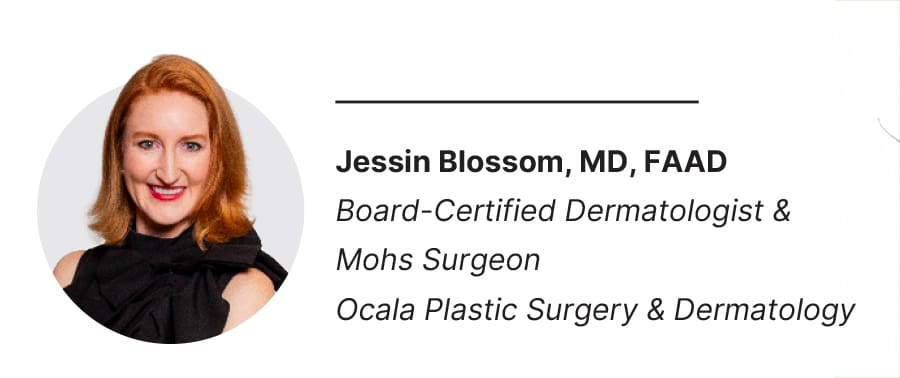

Maintain Social Connections
“Screen time is a double-edged sword. It provided a way to be connected during COVID when we couldn’t be physically together, but now we see its impact. It’s been difficult for children and adults to get back in touch,” observes Amanda Cypret, LMHC, with Silver River Counseling.
Amanda sees a continued disconnect and lack of engagement as she counsels families post-pandemic. People are living under the same roof without talking regularly or meaningfully.
“We’ve really gotten away from basic communication skills. There’s a big difference in being alone and being lonely. People can physically be around others and still feel lonely,” says Amanda, emphasizing the importance of social connection.
Research shows that loneliness has a marked impact on health, increasing the risk of heart disease, depression, anxiety, high blood pressure, stroke, Alzheimer’s disease and premature death. Loneliness has been shown to have the same impact on mortality as smoking 15 cigarettes a day.
Simple ways to improve social connections:
- Put down the phone
- Introduce yourself to someone
- Spend time outside together
- Take a sensory walk as a family and talk about what you see
- Ask questions and practice “active listening” (listen without waiting for your turn to talk)
“Social connection helps heal parts of the brain. It makes us feel seen, heard and understood, like we matter in the world,” Amanda says.
Staying connected even impacts life expectancy. Studies involving 308,849 participants reveal that those with strong social relationships had a 50% lower risk of premature death than those without.
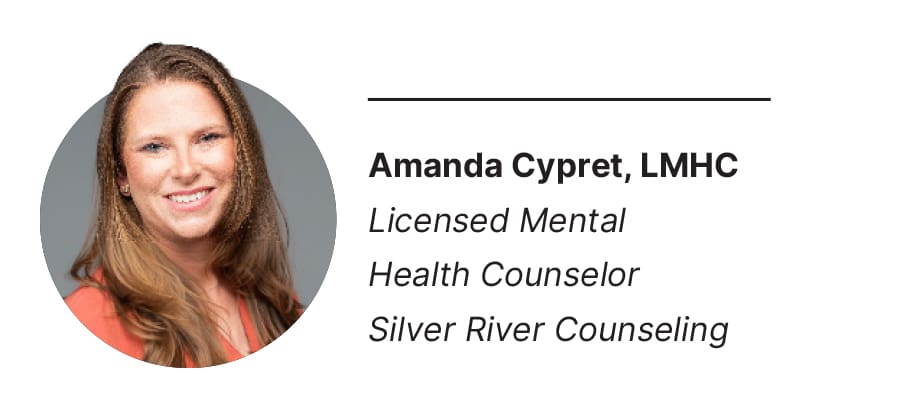

Routine Health Checkups
Waiting to go to the doctor only when you’re sick can be a big mistake.
“Preventative maintenance works for humans, too. Don’t treat your car better than yourself,” advises David M. Levitt, MD, of Aegis Medical Group Clermont.
Many diseases have no symptoms until the condition is well-progressed, which is why annual checkups are so important.
Routine checkups and screenings help you maintain health and catch potential issues before they become problematic. How often you need checkups depends on your age and physical condition.
Non-smoking adults in good health younger than 50 should have a wellness exam every 2-3 years, and once a year after turning 50.
If you have any comorbidities, such as diabetes, COPD, or another chronic disease, you should schedule exams more often, no matter your age.
Dr. Levitt emphasizes the importance of being able to trust your doctor and urges patients to be honest about their lifestyle habits. If you smoke, vape, or drink alcohol, tell your doctor, as this affects what kind of testing will be ordered.
Take charge of your health. Learn which screenings are recommended by age, and then make that appointment.
https://ufhealth.org/conditions-and-treatments/health-screenings-for-women-ages-40-to-64
https://ufhealth.org/conditions-and-treatments/health-screenings-for-men-ages-40-to-64

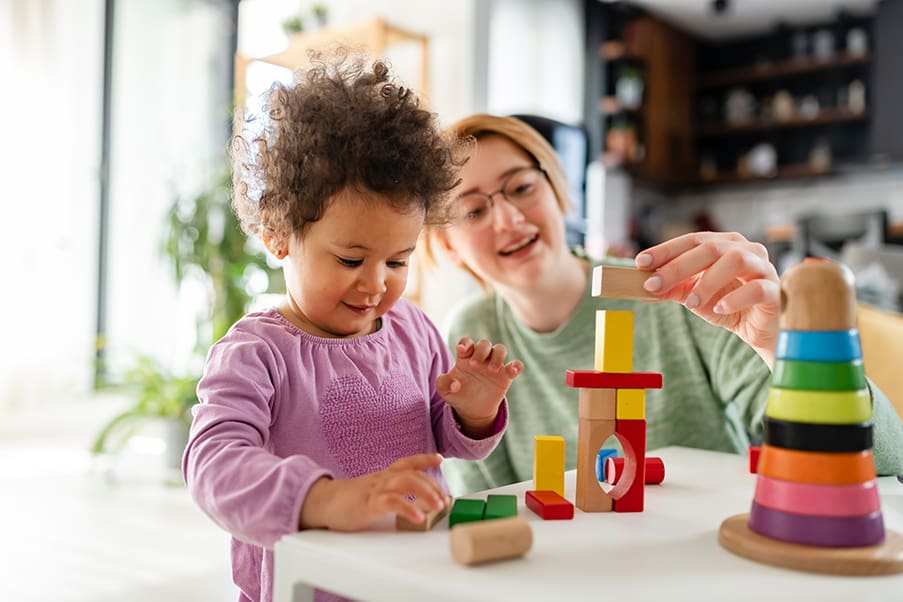
Stay Mentally Active
“Keeping your brain active and challenged helps maintain cognitive function and enhances creativity but also weighs into your overall wellbeing,” says Brittany McBryde Williams, LMHC, of Silver River Counseling.
To stay mentally active, our brains need sustenance, which means pursuing opportunities for learning and challenges.
This could mean working a puzzle, playing a musical instrument, learning a new hobby or skill. Ideally, choose something screen-free.
“The more you use screens, the more comfortable your brain feels to choose that again and again. It becomes like autopilot,” Brittany says.
An important aspect to staying mentally active is being present and practicing mindfulness. Realize that for everything you say “yes” to, you’re choosing to say “no” to many other things. Saying “yes” to scrolling on social media for 30 minutes could be saying “no” to playing with your kids or practicing self-care.
Brittany encourages clients to budget their mental energy for each day, including what they view as priorities.
“Everything needs balance, so you don’t need to be mentally active all the time. You set yourself up for success by intentionally building in balance and limits,” she says. “We can enjoy the ride while also being aware. The key is living
intentionally.”
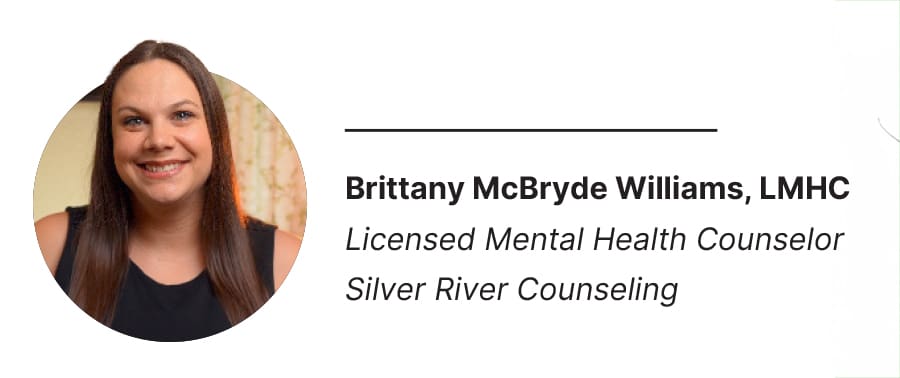
"I fell in love with words early on and knew from fourth grade that I wanted to be a writer,” says Cynthia McFarland. A full-time freelancer since 1993 and the author of nine non-fiction books, her writing has earned regional and national awards. Cynthia lives on a small farm north of Ocala; her kids have fur and four legs




















